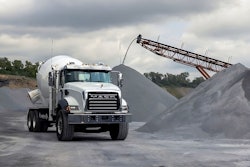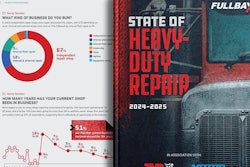When drivers approach weigh stations on the Interstate, they know they might be directed to pull in and submit to a thorough truck inspection. If that happens, enforcement officials will typically conduct an exhaustive examination for defects. They’ll look for worn tires, brakes out of adjustment, and burned-out lightbulbs for starters. They will also scrutinize the driver’s license, medical certificate, permits, registration, bills of lading, and electronic logging device (ELD) records.
Of course, drivers don’t relish these inspections since they take time and present the potential for citations. Most wonder what caused them to be selected for these inspections and what they can do about it. The answer is a little complex but not impossible to understand.
While enforcement officials use various tools and criteria to select trucks and drivers for inspection, the fleet’s Inspection Selection System (ISS) score is the most common. The ISS score assigned by FMCSA primarily reflects the fleet’s performance as measured by FMCSA’s Compliance, Safety Accountability (CSA) Safety Measurement System (SMS). However, there is not a 1 to 1 relationship between the two. The ISS only considers SMS measurement categories that most logically can be addressed during roadside inspections – like hours-of-service compliance and vehicle maintenance.
Each motor carrier is assigned an ISS score ranging from 1-100, which guides inspectors in selecting vehicles. The system is necessary because there are 14 million trucks on the road, but FMCSA and state enforcement agencies only have sufficient personnel to conduct approximately 3.5 million inspections annually. Higher scores are generally assigned to those with the poorest performance, though fleets lacking enough data to be scored are also prioritized for inspection. Fleets that use a weigh station bypass program often get an in-cab notification about a mile before the inspection station, telling them they may bypass the site entirely. Those that don’t must pull in, wait in line, and keep their fingers crossed that they won’t be selected for inspection.
FMCSA encourages states to inspect any fleet with an ISS score greater than 75 and allow any fleet with a score below 50 to pass through. Those with scores in between are considered “optional.” However, here’s the catch: Not every fleet with a score over 75 will get inspected each time they approach a weigh station. The state enforcement agencies simply don’t have the resources to do so. Instead, each state has its suggested “pull in” rate based on its capacity to inspect vehicles. For instance, one state might pull in every truck operated by a fleet with a score of 95 or higher, while another state might pull in only one in four. It all depends on the state and its enforcement capacity.
Remember that trucks are pulled in for reasons beyond their ISS scores. Vehicles that exceed allowable weight limits, with expired registrations, or failing to comply with state tax requirements will also get pulled in. In addition, inspectors retain the option to pick vehicles based on their discretion. For instance, if an inspector spots obvious load securement violations on a flatbed, missing lug nuts on a wheel, or an underinflated tire, the truck is more likely to get pulled in. In many states, they may also select a vehicle at random.
Complete truck inspections usually take about an hour, but there are things drivers can do to help the process go more smoothly and efficiently. Having their documentation in order and easily accessible is one of them. They should also be familiar with the steps needed to transfer data from their ELD to the enforcement officer. And, of course, it always helps to be polite and cooperative. Drivers need to understand they play an important role in facilitating the inspection process.
Want to learn more? The full ISS methodology is available here for those brave enough to dive into it. However, Fleetworthy has created an easy-to-read explanation of the system, which is available here (Understanding Inspection Selection System PDF). Fleets can access their ISS scores by registering with FMCSA to obtain an account and access their records.












